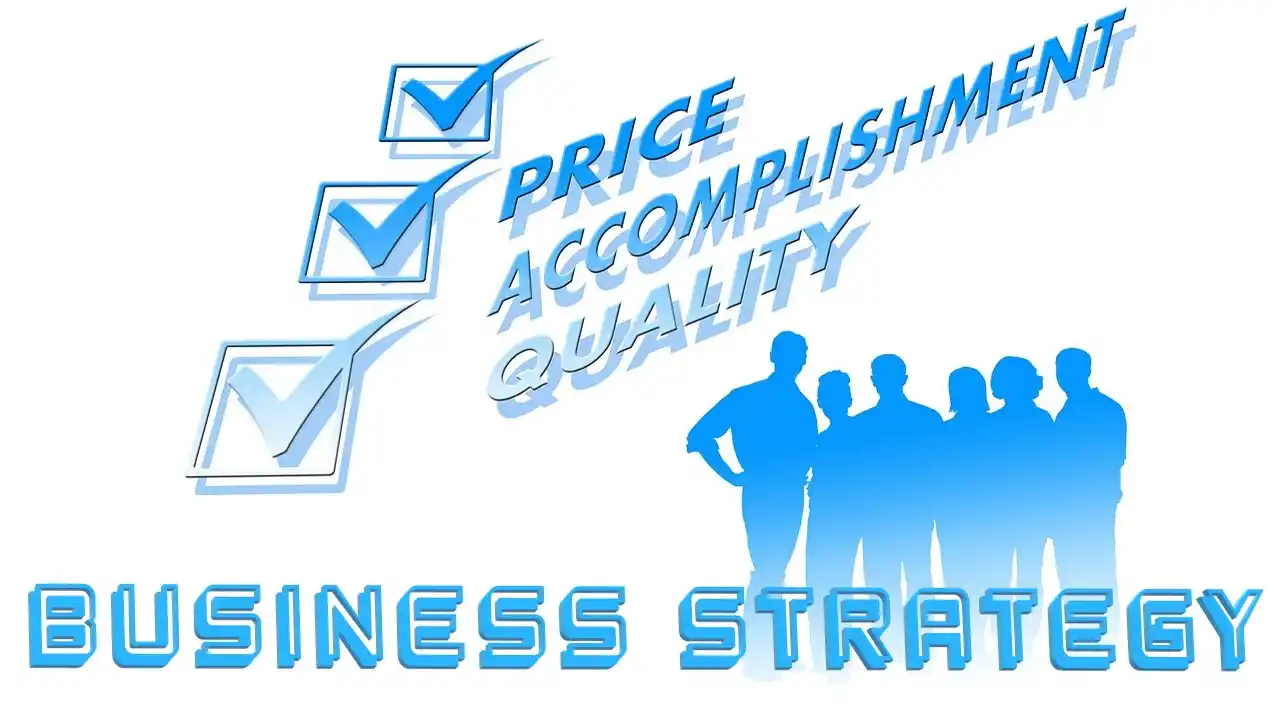Given all of these purported benefits, we have no reason to labour for anyone but ourselves. Let’s examine some of the difficulties associated with starting and operating a small enterprise. Small enterprises cannot provide the same quality of work environment as large corporations. When certain benefits are not provided, it is more difficult to attract talented employees. The company’s growth will be hindered, and establishing a small company as an industry leader will be more challenging. Read on to discover everything there is to know about disadvantages of small business and to become a subject matter expert on it.
A small business proprietor should constantly seek out alternative funding sources. Small businesses can apply for grants from the federal government, but private investors may be less inclined to assist them in obtaining capital. If a smaller business does not have the same market share or presence as a larger company, it may be difficult to convince venture capitalists and other private investors to help it expand. This is due to the fact that larger enterprises are more likely to succeed in the market. Even banks can make it difficult for a small business to obtain financing by imposing a higher interest rate on loans to small businesses than to larger businesses.
Top 12 – Disadvantages of Small Business
When a larger company experiences a decline in sales, it may have sufficient cash on hand to continue expanding. It is possible that a larger company’s reputation will enable them to negotiate better terms with their suppliers, allowing them to continue making money until sales recover. A small business typically has a smaller budget, and if it loses a substantial amount of money and does not have sufficient cash on hand or investors willing to provide a line of credit, it may be forced to close. This article will go into disadvantages of small business in detail and provide some examples for your convenience.
Threats
Even if you begin your business with the greatest intentions and the most thorough planning, there are a number of unknown factors that could be detrimental. If an unforeseen geopolitical event occurs, it could precipitate a rapid economic downturn, causing people to spend less money on non-essential items. There is a possibility that a formidable competitor will infiltrate your market and steal some of your customers.
In the event that a key provider or business partner becomes ill, you may be asked to complete additional tasks at the last minute. It is difficult to make predictions because of the unknowns. Note: Working with your local Small Business Development Center to work and prepare will help you mitigate the effects of such situations, but the unknowns may keep you awake at night.
Investment
People who own their own enterprises are the only ones who truly understand the term “investment.” As a small business proprietor, you will need to invest more than just money. You will also need to invest time, energy, and a substantial portion of your existence.
There will be times when money is limited, and there will be times when you must sacrifice quality to meet a deadline. This test will require you to maintain a steady equilibrium and persevere. One of the significant disadvantages of small businesses is that they have limited resources to invest in research and development, hindering innovation.
Uncertainty
Even if the company experiences initial success, external factors such as economic downturns, the entry of new competitors, or a shift in consumer preferences may impede its growth. Even with extensive planning, business owners will never be able to anticipate every conceivable change in the economy. This is the disadvantages of small business.
Obtaining Funds
If your business does not have a game-changing product, it will be extremely difficult to raise capital for expansion. If you find yourself in this situation, you should prepare for the upcoming challenge. Banks will not simply lend you money because they fear trying something novel.
Usually, small enterprises fail because they cannot repay their large loans. Angel investors will not invest in a startup that does nothing that has never been done before. You must fund your business and possibly sell personal items to sustain it.
Commitment of Time
People frequently establish businesses with the expectation that it will allow them to spend more time with their families. In theory, you can take time off, but you may not be able to avoid your obligations in practice. In fact, you might find that working for yourself leaves you with less free time than working for someone else. Many business owners, particularly those who operate small businesses, believe that a forty-hour workweek is a myth.
We have previously stated that business owners typically labor 55 hours per week. You may be required to work late at night, on weekends and even during your vacation. Even though we’re all accustomed to being able to communicate immediately, mobile phones, iPhones, Internet-capable computers, and iPads have complicated our lives. Due to this, many small business proprietors regret being available to clients and customers at all hours. At least initially, it may not always be possible to have a “day off.”
Increased Labor Hours
Small business owners may be required to put in extended hours. Because you are solely responsible for operating and managing a business, you may be required to work long hours on weekdays and weekends. You may be able to shorten your workweek and delegate some of your responsibilities to other employees as you gain experience operating a small business and as your team grows.
Stress and Health Problems
One of the disadvantages of small business is health problem. As a business proprietor, you are the public face of your company and are expected to “wear many hats.” There are numerous issues to address, including competition, employees, bills, broken equipment, unhappy customers, supplier shortages, and late deliveries. There are simply too many issues to address.
You are responsible for the health and safety of your employees as the business owner. This means that you will almost certainly have to perform disagreeable tasks, such as firing employees. To get qualified individuals to work for your company, you must locate, interview, and hire them.
This will be even more difficult in a profession that is thriving and has a low unemployment rate. Are you in sufficient health, do you have the ability to persevere when things become difficult, and will your family support you through these difficult times so you can succeed?
Possible Absence of Direction
You may not be able to locate a mentor who can assist you with your work and finances as a small business owner. This can be challenging and make it difficult to predict the success of business decisions and strategic movements. By enlisting the assistance of business consultants or advisors, you can receive guidance on how to make business decisions and gain insight into how these decisions may affect you.
Income Insecurity is a Possibility
As the owner of a modest business, you should expect your finances to fluctuate. This is especially true if you are just starting out as a small business owner, as new businesses may not receive as much attention or generate as much money as larger, more established businesses. There is a possibility that your income will fluctuate because small business owners frequently pay themselves based on their profits. If you lose your usual source of income, you may need to rely on your savings.
Revenue Decreases
Even if you have the greatest month ever, it does not guarantee that you will not lose money in the following three months. Small businesses rarely generate the same quantity of revenue consistently.
You are incapable of making accurate predictions, so the near future will remain an enigma to you. This issue is responsible for the demise of many small enterprises because it causes so much anxiety. The business world has always been full of surprises, and this has not changed. This is another disadvantages of small business.
Monetary Obligation
Whoever wishes to launch a business, regardless of its size, must have a certain amount of capital. Numerous small businesses receive their initial funding from the owner’s savings, investments, or retirement accounts. This is notably true for self-employed individuals. When you invest this much money in a business, you cannot spend it on yourself or your family.
When a small business owner obtains start-up capital in the form of a loan, they are typically required to guarantee the loan with collateral such as a residence. Putting your home equity at risk requires a degree of financial commitment that not all entrepreneurs are willing to assume.
Financial Risk
Entrepreneurs must take risks due to necessity. But what is your risk tolerance, and how willing are you to jeopardise your life savings or even incur debt to launch or expand your business? And if things don’t go as planned and you lose a significant amount of money, do you have a backup plan (or another method to earn money)? Are you willing to forego a consistent income in order to launch your business?
If so, how will you pay your expenses and maintain your current lifestyle? Tragically, four out of every five enterprises fail within the first five years of operation. I’ve learned that new enterprises with at least two partners are the most successful.
FAQ
What are the Drawbacks of Owning a Small Business?
Business owners frequently report experiencing high levels of tension and a variety of health issues. Because they do not receive a daily paycheck, business owners must constantly discover new ways to generate revenue. The annual income of proprietors is frequently volatile, and they run the risk of incurring additional debt.
How Common are Small Business Failures?
The Bureau of Labor Statistics (BLS) reports that approximately 20% of new enterprises fail within the first two years, 45% fail within the first five years, and 65% fail within the first ten years. The majority of new enterprises fail within the first 15 years of operation, accounting for 75% of all business failures.
Is it Difficult to Establish a Small Business?
Regardless of the circumstances, launching a new business is difficult, but the consequences are much higher when the economy is unstable. This is due in part to the fact that it can be difficult to obtain funds when the credit market is unstable. Therefore, small business proprietors must enhance their business plans.
Final Words
You can never be too courteous to help out with chores like sweeping the floor and maintaining the facilities. A modest business with three or four employees can save money by not employing a caretaker. As the manager, it is your responsibility to ensure that the company always projects a professional image. This includes maintaining a tidy and organized workplace.
This is an excellent opportunity to demonstrate to your employees that you are not hesitant to roll up your sleeves and get your hands dirty to complete the task. It makes the team feel better and gives you the opportunity to recruit others to help clean the office. Read on to learn more about disadvantages of small business and become the subject matter expert on it. Read this recent article to learn about the latest research on small business growth strategies topic.






